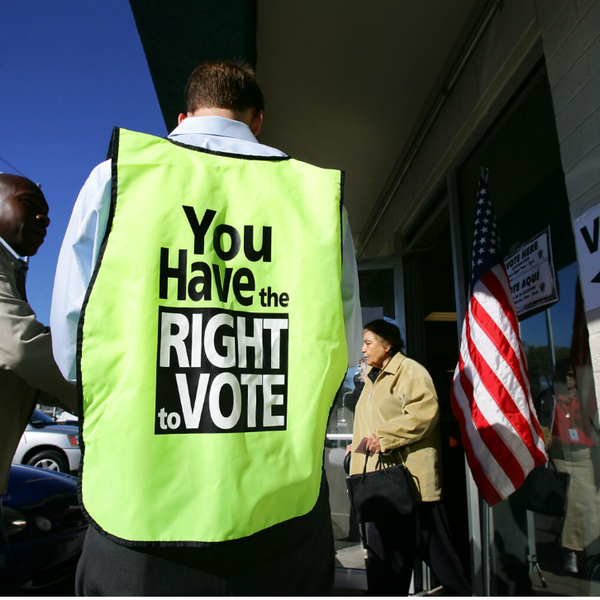
Gov. Rick Scott’s latest purge of Florida’s voter rolls is lurching forward, despite the skepticism and outright opposition of many county elections supervisors.
True to his “Tea Party” roots, Scott dreams of the days when most voters were cranky, middle-aged white people, his core constituency. Up for re-election next year, the governor fears a high voter turnout, because that would mean lots of Hispanics and African-Americans standing in line to cast their ballots.
They tend to vote Democrat, grim prospects for a Republican who isn’t exactly beloved in his own party.
Scott’s first voter purge was a debacle. Initiated ahead of the 2012 elections, the idea was to thwart President Barack Obama and other Democratic candidates by reducing the number of Hispanic, Haitian and other foreign-born voters.
Screening drivers’ licenses, the Division of Elections produced a list of about 182,000 possible non-citizens who were registered to vote. Unfortunately, the list proved worthless because the data was outdated or flat-out wrong.
County officials were left exasperated and angry.
Scott’s vote-whitening hit squad then reduced the list of targets to 2,600, and finally to a measly 198 before bagging the whole project.
To the dismay of Scott and Republican leaders, Obama carried Florida. This information wasn’t available on Election Day, or for several days afterwards, because Florida was the last state in the country to count all its votes.
Thank God it no longer mattered.
More than 8.4 million Floridians went to the polls, and long lines overwhelmed some election offices late into the night. These delays could have been avoided if Scott and the GOP-controlled Legislature had agreed in advance to increase the number of early-voting sites, as many county supervisors had requested.
But Republicans don’t like early voting because it raises the total turnout. They prefer a smaller, more manageable electorate.
The new Florida purge will use a data program from U.S. Department of Homeland Security called the Systematic Alien Verification for Entitlements, or SAVE. Election officials are supposed to compare voter rolls to a list of legal non-citizens who are qualified to receive certain benefits.
A federal court ruled that Florida was allowed to use the SAVE list, even though Homeland Security officials raised doubts about its reliability as a means of identifying non-citizens.
The point man for the Voter Purge II is once again Secretary of State Ken Detzner, a Scott appointee, who calls it “Project Integrity.” Seriously.
Detzner recently finished a short statewide tour of county elections offices, where he tried to stir up enthusiasm for the purge. There was none.
The most intense grilling came from Susan Bucher, supervisor of elections for Palm Beach County, the site of repeated ballot fiascos going back to Bush-Gore in 2000. A Democrat serving in a nonpartisan position, Bucher questioned Detzner and his staff about the accuracy of the SAVE list.
“Where does that data come from; how often is it updated — every 10 years or every 10 minutes?” she asked, adding: “I have a lot of concern that the people we got the database from are saying this is not comprehensive and definitive.”
Picky, picky, picky.
Detzner replied that SAVE was the best database available, and the voter screening “will be done correctly.”
He said he didn’t know how often the information was updated to show changes in immigration status. When asked how soon counties would be supplied with lists of potential non-citizens on the rolls, he said he didn’t know.
He couldn’t even say which agencies in Tallahassee were receiving the data from Homeland Security. But, hey, he’s the secretary of state. Why should he be bothered with such piddling details?
If Detzner’s mission was to inspire confidence in the purging process, it backfired. The only worse strategy would have been for Scott himself to show up and try to explain it.
The governor’s attack on the voting rolls took a new tack two weeks ago when Detzner issued a “directive” saying election officials shouldn’t “solicit” the return of absentee ballots to any location except the supervisor’s office.
Several counties allow people to turn in absentee ballots at early-voting sites or secure drop-off boxes. It’s meant as a convenience to those who are elderly, disabled or have limited transportation.
Detzner says he’s only enforcing the law.
To county elections officials, it’s just more of the same meddling, more time and taxpayer resources wasted on a continuing political crusade to shrink the vote.
It self-destructed the first time, and the same thing will happen again.
Those long lines at the polls in South Florida last year weren’t packed with illegal voters, as Scott would perhaps like to believe. They were the people his own party has turned its back on.
And, try as he might, he can’t make them go away.
(Carl Hiaasen is a columnist for The Miami Herald. Readers may write to him at: 1 Herald Plaza, Miami, Fla., 33132.)
Photo: Erik Hersman via Flickr








